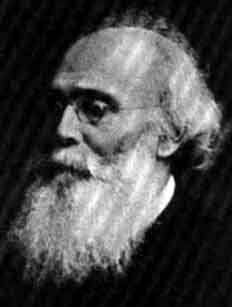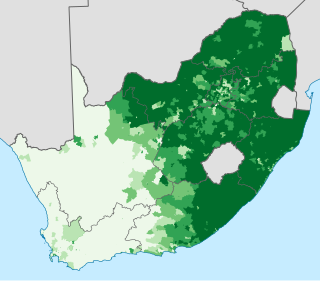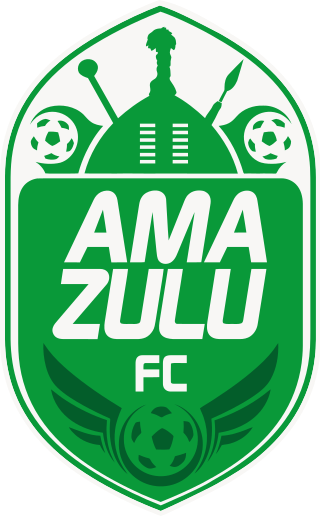
Shaka kaSenzangakhona, also known as Shaka Zulu and Sigidi kaSenzangakhona, was the king of the Zulu Kingdom from 1816 to 1828. One of the most influential monarchs of the Zulu, he ordered wide-reaching reforms that reorganized the military into a formidable force.

Zulu people are a native people of Southern Africa of the Nguni. The Zulu people are the largest ethnic group and nation in South Africa, with an estimated 14.39 million people, in total of which 13.78 million people live in South Africa, mainly in the province of KwaZulu-Natal.

Zulu, or IsiZulu as an endonym, is a Southern Bantu language of the Nguni branch spoken and indigenous to Southern Africa. It is the language of the Zulu people, with about 13.56 million native speakers, who primarily inhabit the province of KwaZulu-Natal in South Africa. Zulu is the most widely spoken home language in South Africa, and it is understood by over 50% of its population. It became one of South Africa's 12 official languages in 1994.
Zulu traditional religion consists of the beliefs and spiritual practices of the Zulu people of southern Africa. It contains numerous deities commonly associated with animals or general classes of natural phenomena. Unkulunkulu is known to be the Supreme Creator.
Amazulu were a British reggae/ska/pop band from the 1980s comprising five women and one man. They achieved success in the UK charts with four top-20 hits, the biggest being "Too Good to Be Forgotten" in 1986.
Unkulunkulu (/uɲɠulun'ɠulu/), often formatted as uNkulunkulu, is a mythical ancestor, mythical predecessor group, or Supreme Creator in the language of the Zulu, Ndebele and Swati people. Originally a "first ancestor" figure, Unkulunkulu morphed into a creator god figure with the spread of Christianity.

The Religious System of the Amazulu (1870), by Henry Callaway, describes the beliefs of the Amazulu people. It was written in both English and Zulu. Henry Callaway was an English missionary. His interest in the Zulu people began when he settled on the banks of the Nsunguze river where he created various books influenced by them. One of those books was The Religious Systems of The Amazulu. The book is presented in question and answer format. It is divided into four different sections which include, Unkulunkulu, Amatonga, Izinyanga Zokubula, and Abatakati. Each of these sections focuses on the four main aspects which constitute the religious system of the Zulu people.

Henry Callaway was a missionary for the Church of England and bishop of St John's, Kaffraria, in the Church of the Province of Southern Africa.
Soshangana Ka Gasa Zikode, born Soshangana Nxumalo, was the Founder and the Monarch of the Gaza Empire, which at the height of its power stretched from the Limpopo river in southern Mozambique up to the Zambezi river in the north. Soshangana ruled over the Gaza state from 1825 until his death in 1858. Soshangana was also known by the name of Manukosi.

South African Bantu-speaking peoples represent the majority indigenous ethno-racial group of South Africans. Occasionally grouped as Bantu, the term itself is derived from the English word "people", common to many of the Bantu languages. The Oxford Dictionary of South African English describes "Bantu", when used in a contemporary usage or racial context as "obsolescent and offensive", because of its strong association with the "white minority rule" with their Apartheid system. However, Bantu is used without pejorative connotations in other parts of Africa and is still used in South Africa as the group term for the language family.
The Zulu royal family, also known as the House of Zulu consists of the king of the Zulus, his consorts, and all of his legitimate descendants. The legitimate descendants of all previous kings are also sometimes considered to be members.

AmaZulu Football Club is a South African professional soccer club based in the city of Durban in the KwaZulu Natal province, that plays in the Premiership, the first tier of the South African football league system. The club's nickname, Usuthu, is a Zulu war cry.

Euphorbia cupularis, referred to by the common name dead-man's tree is a succulent tree or shrub of the spurge family, Euphorbiaceae. It is found in South Africa and Eswatini.

The Mthethwa Paramountcy, sometimes referred to as the Mtetwa or Mthethwa Empire, was a Southern African state that arose in the 18th century south of Delagoa Bay and inland in eastern southern Africa. "Mthethwa" means "the one who rules".

The Xhosa people, or Xhosa-speaking people are a Bantu ethnic group native to South Africa. They are the second largest ethnic group in South Africa and are native speakers of the isiXhosa language.
Njabulo Manqana is a South African football (soccer) midfielder who among others played for Premier Soccer League club AmaZulu.
The Nedbank Cup is a South African club football (soccer) tournament. The knockout tournament, based on the English FA Cup format, was one of a weak opponent facing a stronger one. The competition was sponsored by ABSA until 2007, after which Nedbank took over sponsorship.
Philani Zulu is a South African footballer who last played for Amazulu F.C.
Inkosazana is a member of the Zulu pantheon and one of the fertility goddesses, with the other being Nomkhubulwane. Some sources also conflated the two with one another.









